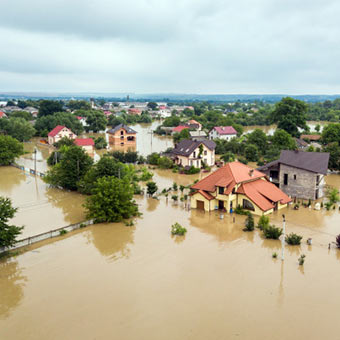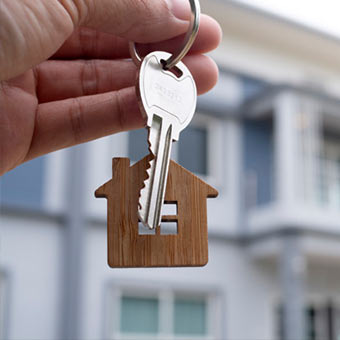General Questions to Ask Yourselves Before Purchasing Property in Greece
For Q&A on Legal Issues Click Here
Budget
It could prove to be a waste of time, to start looking at properties without understanding the total cost that you need to afford. There are additional fees to consider other than the sales price, such as property taxes, homeowners insurance, homeowners association dues, ongoing home maintenance, closing costs, lawyers and notary fees, and any renovations you might decide to do. “Not only does it give the buyer an idea of what they can afford but it gives the Realtor assurance that they’re showing a qualified buyer a home,” “It shows you’re not wasting the seller’s time.”


How much will I pay in closing costs?
The down payment isn’t the only capital you’ll be forking over on closing day. You’ll also be responsible for:
- Closing costs, which typically include loan origination fees if you are undertaking a mortgage
- Solicitors & Notary fees for title research, processing of paperwork, an appraisal and other administrative tasks
- A fee from 3% to 5% of the home’s purchase price in closing costs
- Commission fee from 2% to 5% but that can vary depending on the area
Closing disclosure, which a lender is required to provide you three business days before closing, also lenders in Greece take 90 days in completing and providing a check to the seller. will spell out all of your mortgage fees and how much capital you will be needing to close the sale.“Once the closing documents are signed by both parties and the escrow company sends it to the lender, the lender will fund the mortgage”.
Is the home in a flood zone or prone to other natural disasters?
A property which is located in a flood zone or an other natural disaster area (minor earthquakes which cause no damage, are common throughout Greece) may require additional insurance coverage.
Make sure you purchase enough homeowners insurance to cover the cost of completely rebuilding your home, if by any chance suffers severe damage. If you are under-insured, you could be left footing a massive bill to repair or rebuild your home, should a major disaster occur.


Why is the seller leaving?
Understanding why the seller is moving – whether it’s due to downsizing, a job relocation or as a result of a major life event – might help you figure out how motivated they are when negotiating. A good buyer’s agent will try to find out this information for you and gauge how flexible (or not) the seller might be during negotiations. A motivated seller who needs to move quickly or whose home has been on the market a while is more likely to work with you more than someone who isn’t in a rush to move.
What's included in the sale?
Anything that’s considered a fixture is typically included when purchasing property– think cabinets, faucets and window blinds. However, there could be items that you think are included with the home but actually are not. This depends on your state’s laws. The listing description should spell out any exclusions that the seller is not including, but that’s not always the case. Make sure to ask in your offer what is (and isn’t) included with the property. Do you really want the washer and dryer, or that stainless-steel refrigerator? Ask if the seller will throw these items into the deal.


Were there any additions or major renovations?
In some cases, property records and listing descriptions don’t always match up. A home might be advertised as having four bedrooms, but one of those rooms may be a non-conforming addition that does not follow local building codes. Find out what major repairs or renovations the seller has done since owning the property, and request the original manufacturer warranties on any appliances or systems if those have been replaced. Also! if they have legalized any changes through the Building code department. If any modifications/renovations have not been legalized, then the buyer needs to take care of legalizing it and deducts it from the selling price. Knowing a home’s improvement history can help you better gauge the property condition and understand the seller’s asking price.
How long has the property been on the market?
The longer a property has been on the market, the more motivated the seller will be to make a deal. This means you might find flexibility to negotiate the price, contingencies, terms and credits for replacing items or other noticeable issues. Many times, a property will languish on the market if it was priced too high at the onset, resulting in the need for multiple price reductions. A listing that shows multiple price cuts and has been available on the market too long, may give buyers the impression that something is wrong with the property and that, gives you a prime opportunity to negotiate a deal.

How much other properties have been sold for, in the area?
Understanding the current local market will help you determine if a seller’s asking price is on target – or way too high. Your Realtor can pull the comparable listing data for similar homes that are currently on the market and have sold in the last six months or so as a basis for comparison.
“If conditions support further negotiating, consider (making) a lower offer or even concessions like asking the seller to pay for some closing costs” Stefanos says.


“Energy Efficiency” certificates and documentation
When selling or renting a property or business in Greece you need to have certification for energy efficiency of the building, which is issued by the local government construction department.
The certificates includes the name of the owner, and all their legal tax, and id information, as well as the construction permit for the building, the year of construction certificate, the thermal insulation study, heating study, energy loss or gain from the structure of the property, topography plans, titles, cadastral and plan/date of structure/work which was done illegally in the past and have been documented and processed legally to the building department.
Without this certificate a property owner can not sell or advertise their property or house in the market of real estate in the whole country. This protects the consumer from both sellers and buyers.

What are the neighbors like?
Getting the true feel of a neighborhood can be difficult before moving in, but this aspect shouldn’t be overlooked. Ask the seller what the neighbors are like. Noisy or quiet? Is it a pet-friendly place or are there few pets around? Are the existing neighbors friendly or more likely to keep to themselves? Do not rely solely on the seller to reveal these details because you might not get the full story.
“Drive the neighborhood and stop to chat with the locals” Stefanos suggests. “Neighbors are an excellent way to get information about the community that a seller might not want to share.”

How is the neighborhood?
You can always change a house and fix things you don’t like, but the neighborhood is there to stay. It’s important that you like the environs you’ll be living in for the next 10, 20 or 30 years. Your Realtor can help you find out key information, such as community amenities, crime statistics, school ratings and how busy traffic is where you’ll be living.
Thankfully, the internet is also a great resource where you can research schools, homeowners association rules (if applicable), nearby parks and other amenities. And don’t forget to time your commute to work – which might be a deal breaker.

Any problems with the property?
Sellers are required to provide a disclosure form listing any known defects, but what they don’t disclose and you don’t know can lead to major issues later.
That is why it’s critical to get a home inspection done by a professional home inspector, as soon as a purchase agreement is signed.

Access "to" and "from" the property
Depending on the location of the property in Greece, access is the number one aspect that you should consider, before anything else. If you are buying property in a major metropolitan area, it’s most likely you will have no issues, but when purchasing property in the countryside or an island… it is.
A “must” to investigate and make sure off, is if there is a road/path to the property and also if there is an alternative way to get there, such as public transportation or train. Additionally, ask about the distance from a police station, hospital -or doctors office- shops etc.

Why Location, Location... Location!
is a myth
You have heard this a lot of times location, location, location during the industrial revolution companies were typically located on rivers for power, transportation, and I guess, water. Today, things are different. Today’s rivers, power grids, high speed internet, express mail are everywhere, when it comes to retail, real estate and restaurants location is surely a must. but with technology today the location is a myth you can probably live anywhere without having to spend lots of money for prime location.
So I came to fervently believe that we make our own deals, wherever we are, through vision, negotiation and hard work. That is to say, even if you live in Hicksville or Ballygobackwards it is possible to do great deals locally, it just takes a commitment. Not only this, but the more rural areas seem to deliver the more consistently profitable opportunities with much less competition whereas the trending and higher population centers are much more expensive with very competitive margins and therefore a higher risk. So for me, it’s not just the numbers that make a deal, it also takes vision to look at a property and see how to create an economically viable end product that will generate a decent profit at the end of the day.